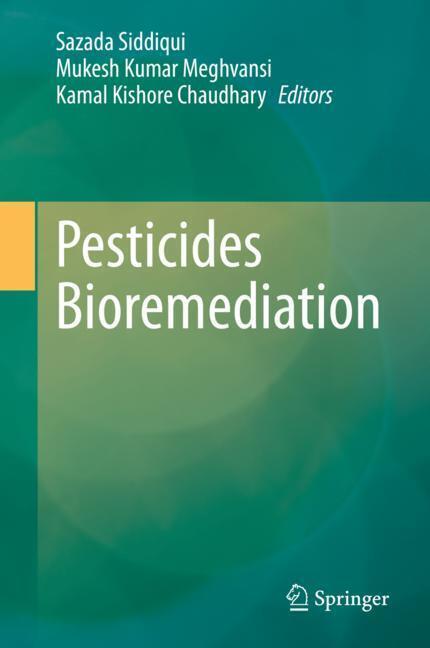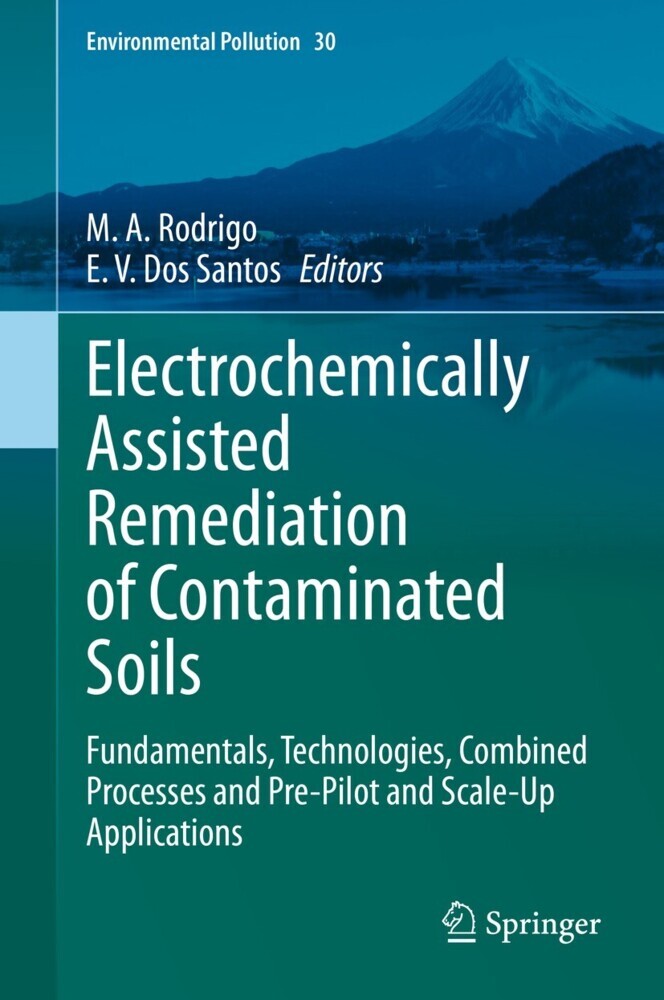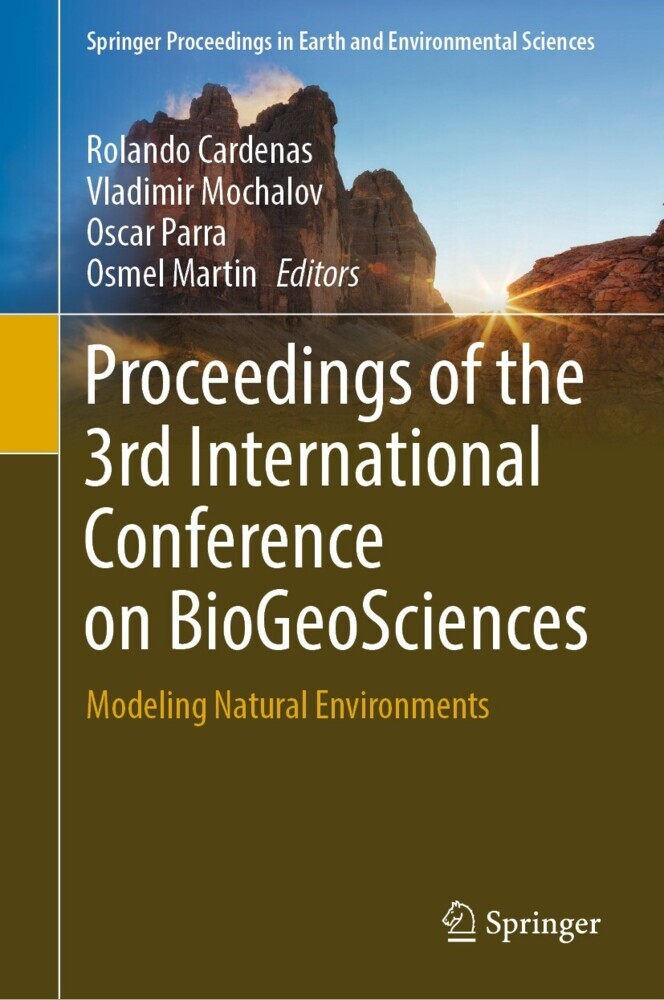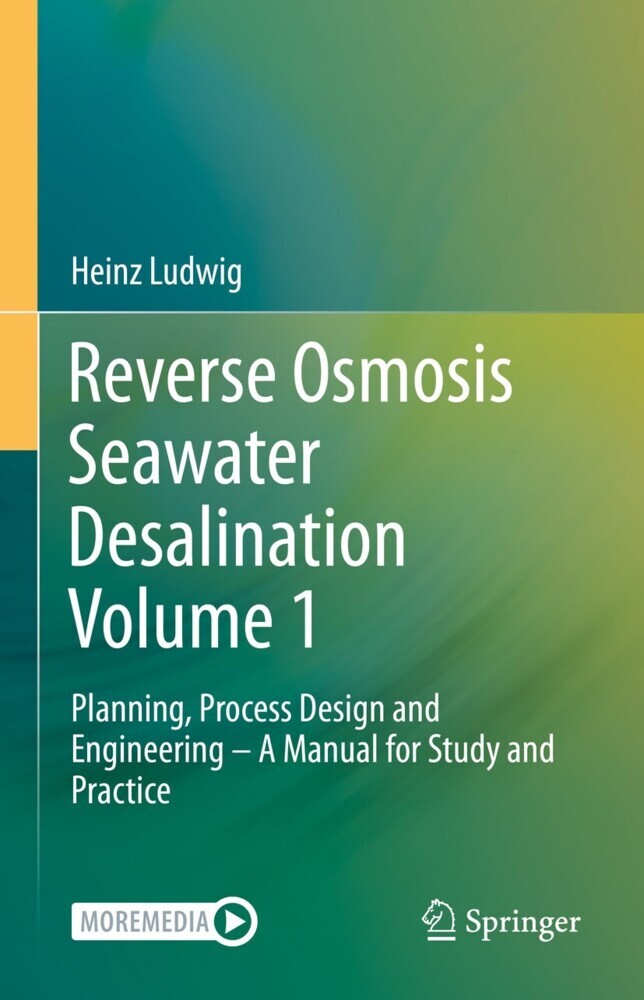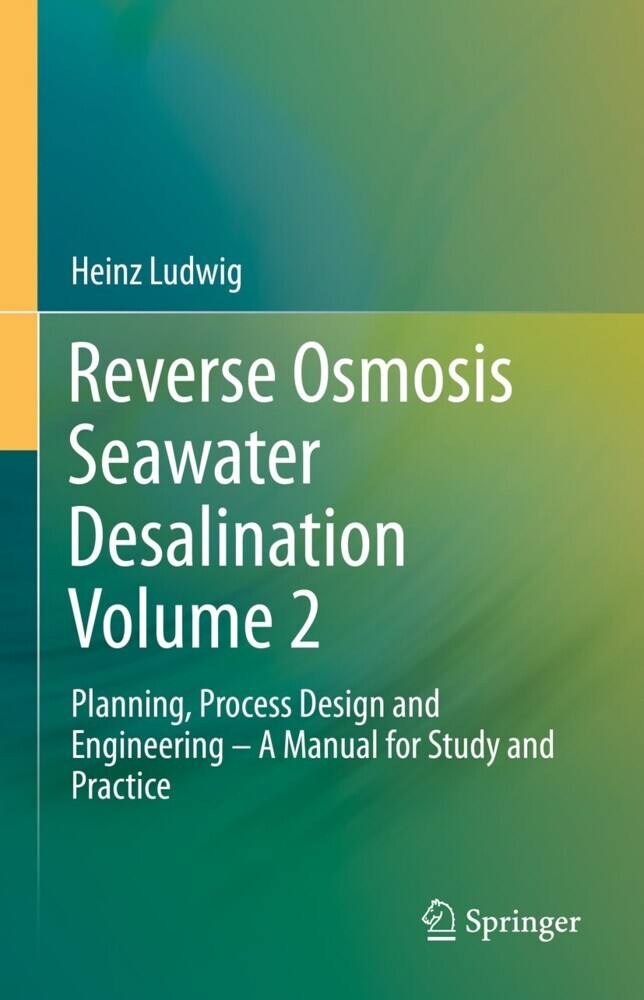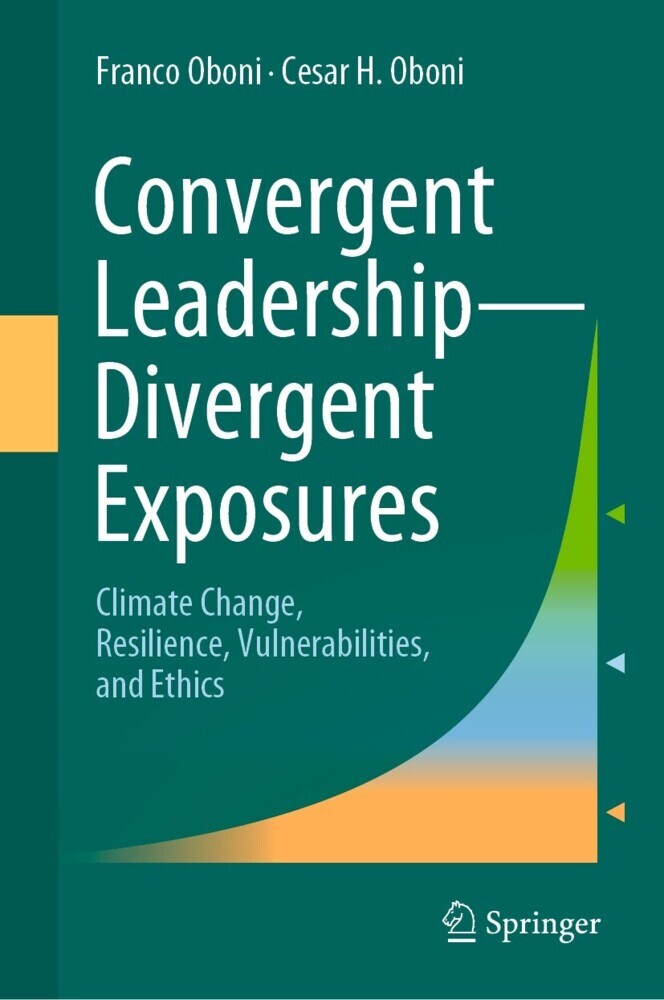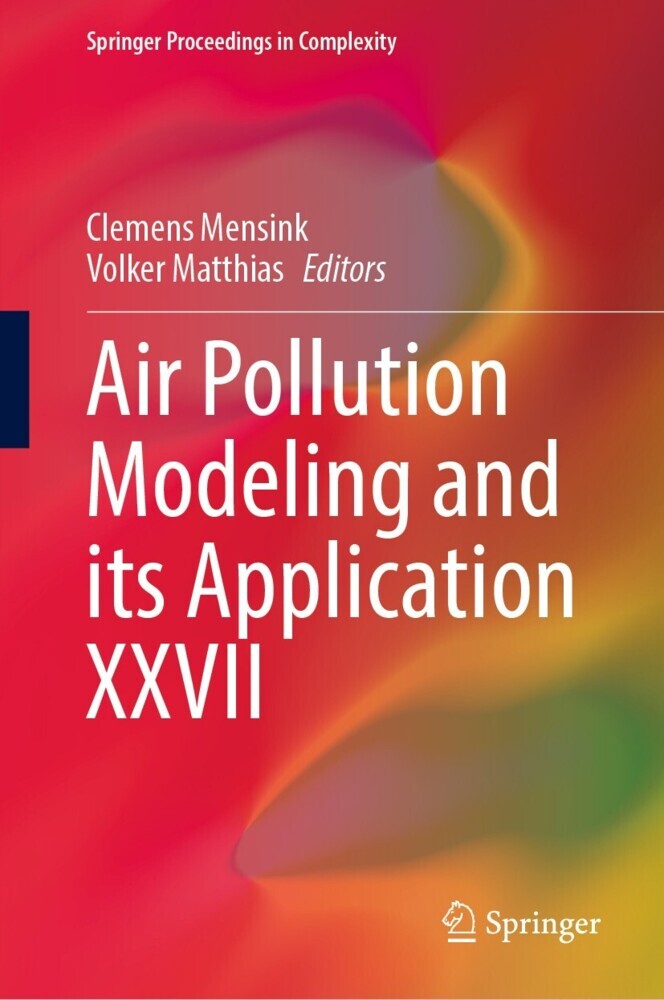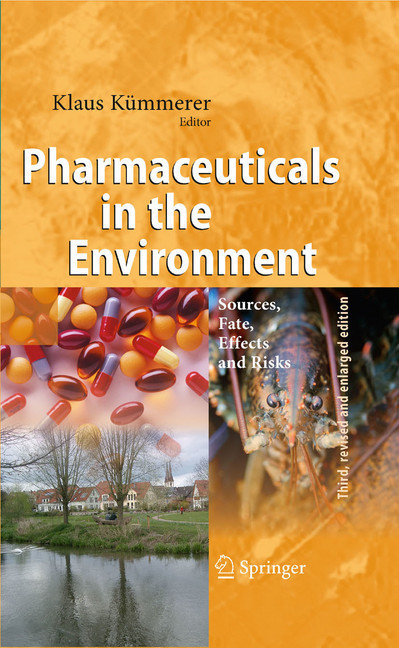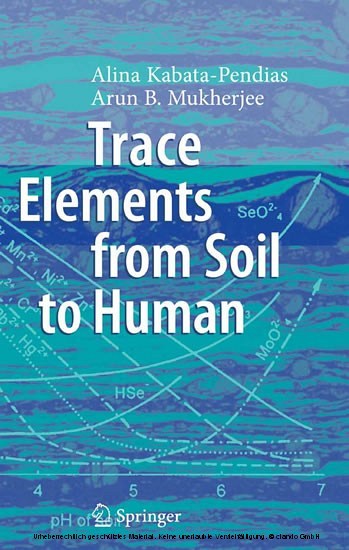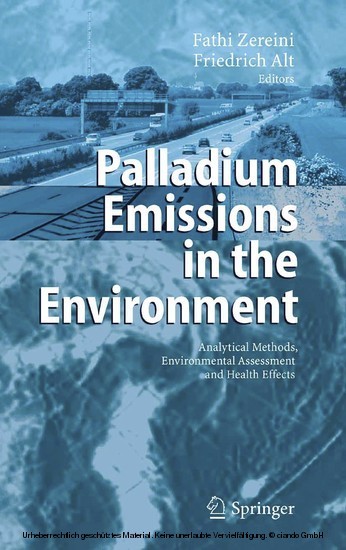Pesticides Bioremediation
This volume offers the latest theory, procedures, techniques and applications pertaining to the bioremediation of pesticides, as well as current case studies. The book is composed of chapters written by global experts and is divided into three topical sections. Section A deals with concepts and mechanisms of pesticides bioremediation; Section B examines latest tools and techniques; Section C offers global case studies of pesticides bioremediation. The novel methods described here are timely, as traditional pesticide usage leads to high wastage via decay, vaporization and seepage. This of course leads to environmental contamination and has necessitated the development and use of novel technologies like bioremediation for minimizing the impact of pesticides on the environment. This volume will be of relevance to academics, researchers and students who are working in the realm of pesticide bioremediation, and will enable policy makers and managerial experts across the globe in drafting policies and strategies for the management and treatment of pesticides.
Dr. Sazada Siddiqui, PhD (Botany) has more than fifteen years of research/teaching experience. She obtained her PhD in 2002 from Barkatullah University, Bhopal (India) and joined subsequently as a faculty in botany department at Bundelkhand University, Jhansi (India). Currently, she is serving as an Associate Professor, King Khalid University, Abha (Saudi Arabia). She has more than fifty international and national publications (research articles, review articles, and book chapters) to her credit. Her research interest includes phytoremediation, biological nutrient removal, cytotoxicity and allelopathy. She is reviewers for many international journals. Her another book entitled 'Laboratory Techniques of Cytogenetics and Microbiology' (ISBN 1530332222) is used as a reference book in King Khalid University, Abha, Kingdom of Saudi Arabia for undergraduate and post graduate students.
Dr Mukesh K Meghvansi (b. 1980) earned his PhD in 2007 from MDS University, Ajmer (India) while working on biofertilizers under a multinational research project sponsored by the European Commission. For a stint, he served as lecturer at Bundelkhand University Jhansi (Uttar Pradesh) and then joined DRDO in July 2008 as a scientist 'C'. Since his joining, he was engaged in R & D on organic waste management and has contributed to popularizing the vermicomposting among armed forces and civil populace in border and forward areas of Northeast India. He has to his credit more than fifty research publications in various international and national journals. He has filed two patents, one design and one trademark in India. He is life member of Indian Botanical Society and annual member of several national/international professional bodies/societies. He is reviewer of many national international journals. He has authored/edited three more books including two with Springer International Publishing, Switzerland. He also holds an MBA degree with specialization in project management. Currently, he is working as Scientist 'E' at Bioprocess Technology Division, Defence R&D Establishment, Gwalior (Madhya Pradesh), India.
Dr. Kamal Kishore Chaudhary obtained his PhD while working on bacterial anta gonist, Pasteuria penetrans against root-knot nematode Meloidogyne species at India's premier research institute ICAR-CAZRI, Jodhpur. He served as Assistant Professor at Samara University, Samara (Ethiopia), and Hamelmalo Agricultural College, Keren (Eritrea). He also served as Associate Professor-Biotechnology at Mangalatayan University, India. He has more than 15 years of teaching and research experience. He is the member of Organization of Nematologists of Tropical America (ONTA), America. He is editor/reviewer for several international journals. He has several publications (research articles, review papers and book chapters) to his credit.
Dr. Sazada Siddiqui, PhD (Botany) has more than fifteen years of research/teaching experience. She obtained her PhD in 2002 from Barkatullah University, Bhopal (India) and joined subsequently as a faculty in botany department at Bundelkhand University, Jhansi (India). Currently, she is serving as an Associate Professor, King Khalid University, Abha (Saudi Arabia). She has more than fifty international and national publications (research articles, review articles, and book chapters) to her credit. Her research interest includes phytoremediation, biological nutrient removal, cytotoxicity and allelopathy. She is reviewers for many international journals. Her another book entitled 'Laboratory Techniques of Cytogenetics and Microbiology' (ISBN 1530332222) is used as a reference book in King Khalid University, Abha, Kingdom of Saudi Arabia for undergraduate and post graduate students.
Dr Mukesh K Meghvansi (b. 1980) earned his PhD in 2007 from MDS University, Ajmer (India) while working on biofertilizers under a multinational research project sponsored by the European Commission. For a stint, he served as lecturer at Bundelkhand University Jhansi (Uttar Pradesh) and then joined DRDO in July 2008 as a scientist 'C'. Since his joining, he was engaged in R & D on organic waste management and has contributed to popularizing the vermicomposting among armed forces and civil populace in border and forward areas of Northeast India. He has to his credit more than fifty research publications in various international and national journals. He has filed two patents, one design and one trademark in India. He is life member of Indian Botanical Society and annual member of several national/international professional bodies/societies. He is reviewer of many national international journals. He has authored/edited three more books including two with Springer International Publishing, Switzerland. He also holds an MBA degree with specialization in project management. Currently, he is working as Scientist 'E' at Bioprocess Technology Division, Defence R&D Establishment, Gwalior (Madhya Pradesh), India.
Dr. Kamal Kishore Chaudhary obtained his PhD while working on bacterial anta gonist, Pasteuria penetrans against root-knot nematode Meloidogyne species at India's premier research institute ICAR-CAZRI, Jodhpur. He served as Assistant Professor at Samara University, Samara (Ethiopia), and Hamelmalo Agricultural College, Keren (Eritrea). He also served as Associate Professor-Biotechnology at Mangalatayan University, India. He has more than 15 years of teaching and research experience. He is the member of Organization of Nematologists of Tropical America (ONTA), America. He is editor/reviewer for several international journals. He has several publications (research articles, review papers and book chapters) to his credit.
Siddiqui, Sazada
Meghvansi, Mukesh Kumar
Chaudhary, Kamal Kishore
| ISBN | 9783030970000 |
|---|---|
| Artikelnummer | 9783030970000 |
| Medientyp | E-Book - PDF |
| Copyrightjahr | 2022 |
| Verlag | Springer-Verlag |
| Umfang | 541 Seiten |
| Sprache | Englisch |
| Kopierschutz | Digitales Wasserzeichen |

